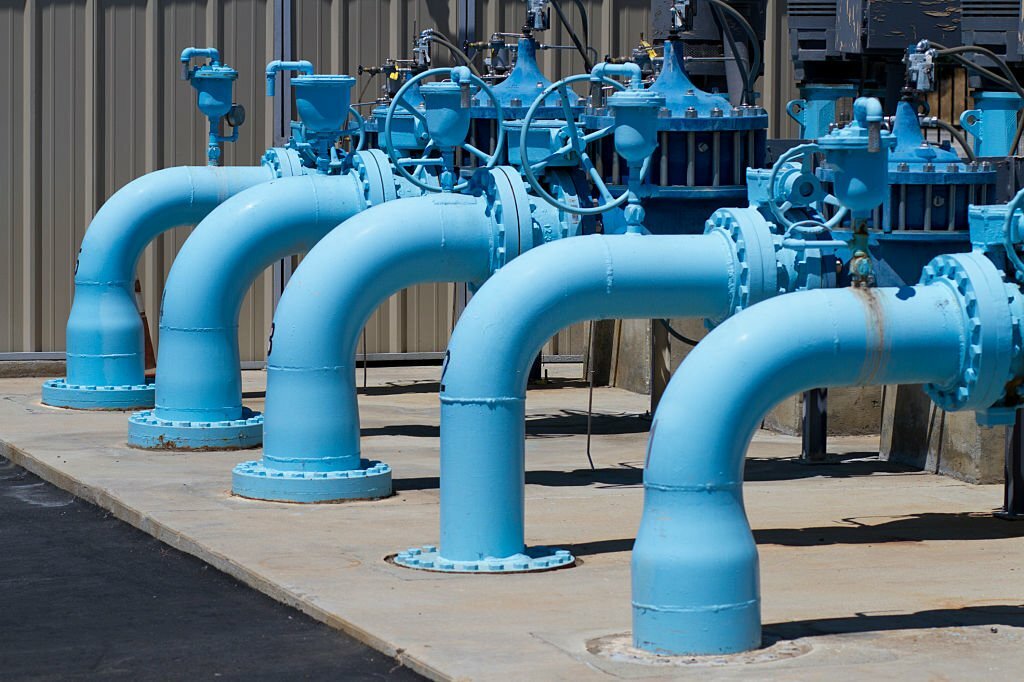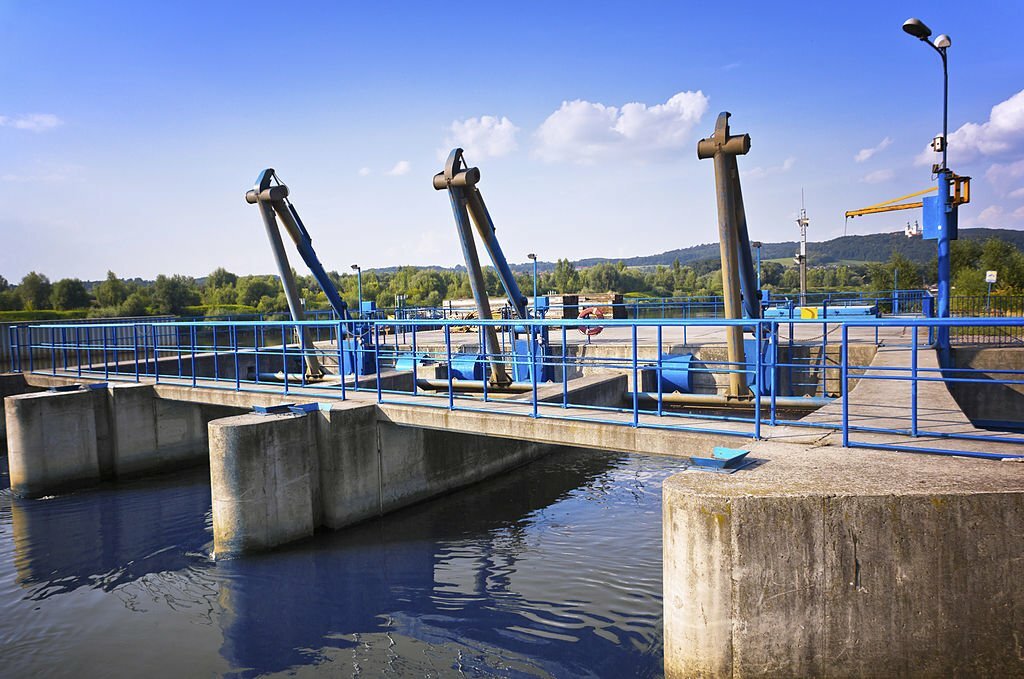Irrigation systems are the backbone of modern agriculture, ensuring crops receive the vital water supply they need efficiently and precisely. However, the significance of heavy equipment in their operation cannot be overstated. Heavy machinery plays a pivotal role in every aspect of irrigation systems, from the initial installation and ongoing maintenance to the optimization of water distribution. Heavy equipment, such as excavators, bulldozers, and tractors, is indispensable in digging trenches, leveling land, and creating ditches during installation. Moreover, they assist in the maintenance and repairs of the system, ensuring minimal downtime and reliable water supply. In essence, heavy equipment is a cornerstone of efficient and productive irrigation, indispensable to modern agriculture.
1. Installation of Irrigation Systems

In the realm of irrigation systems, heavy equipment plays a pivotal role, particularly during the installation phase. This stage is critical for ensuring the efficient and precise delivery of water to crops. Heavy machinery, such as excavators and backhoes, becomes indispensable as they are employed to excavate trenches, creating the necessary pathways for laying pipelines. These machines, with their robust digging capabilities, make the installation process significantly more efficient, reducing labor requirements and minimizing the time needed for completion.
Bulldozers are also crucial in the irrigation system setup. They are instrumental in land leveling, especially when creating irrigation ditches, ensuring that the land is graded correctly to facilitate uniform water distribution. Without these heavy machines, the installation process would indeed become labor-intensive and time-consuming, hindering the rapid deployment of irrigation systems and potentially affecting the timely delivery of water to crops.
2. Maintenance and Repairs

Irrigation systems, like any complex infrastructure, demand routine maintenance and periodic repairs to ensure their seamless operation. Heavy equipment plays a crucial role in maintaining and servicing these systems, contributing to their efficiency and uninterrupted water supply to crops.
Tractors, renowned for their versatility and power, are often employed in the maintenance and repair of irrigation networks. They serve multiple purposes, from towing heavy pumps to relocating large pipes, allowing for efficient repairs and upkeep. Moreover, tractors can transport maintenance crews and equipment to remote or hard-to-reach areas, facilitating swift and thorough servicing.
This involvement of heavy machinery in irrigation maintenance has a direct impact on reducing downtime and minimizing disruptions in the water supply to crops. The timely intervention and swift execution of repairs ensure that agricultural fields receive the critical water resources they need consistently. Heavy equipment, therefore, plays an indispensable role in maintaining the reliability of irrigation systems, upholding their vital function in modern agriculture.
3. Pumping and Water Distribution

In the realm of large-scale agriculture, the efficient distribution of water is essential for the vitality of vast farmlands. To achieve this, heavy-duty pumps are employed in irrigation systems. These pumps are typically powered by robust diesel engines, providing the necessary force to transport water across extensive areas. However, the operation and management of these pumps, which are integral to the consistency of water delivery, require heavy equipment.
Heavy machinery plays a critical role in ensuring the functionality and reliability of these diesel-powered pumps. These machines are employed for various tasks, such as refueling the pumps, conducting routine maintenance, and monitoring their performance. Diesel engines can be demanding in terms of fuel management and regular maintenance, making heavy equipment an indispensable component in the operation of large-scale irrigation systems.
By facilitating the operation and upkeep of these pumps, heavy machinery ensures that water distribution remains consistent and reliable, supporting the agricultural industry’s ability to sustain extensive farmlands effectively. In essence, heavy equipment is essential for the successful management of large-scale irrigation systems, making it a key player in modern agriculture.
4. Land Preparation

Before implementing an irrigation system, proper land preparation is a crucial step to ensure efficient water distribution to crops. This preparation often necessitates the use of heavy machinery, specifically designed for tasks such as land grading, soil conditioning, and crop bed shaping.
Heavy equipment like plows, harrows, and subsoilers are indispensable during the land preparation phase. Plows break up compacted soil, improving aeration and drainage while creating even furrows or ridges for planting. Harrows further refine the soil, breaking down clumps and weeds to create a smoother planting surface. Subsoilers penetrate deep into the ground, improving soil structure and water infiltration.
Efficient land preparation sets the stage for successful irrigation. It ensures that water can flow evenly across the field, reaching the root zones of crops effectively. Without the use of heavy machinery, land preparation would be significantly more labor-intensive and time-consuming, impacting the overall efficiency of the irrigation process. In conclusion, heavy equipment plays a pivotal role in optimizing land for irrigation, a critical step in ensuring the successful growth of crops.
5. Reservoir and Canal Construction

Reservoirs and canals are integral components of many irrigation systems, as they serve the purpose of storing and transporting water to various sections of farmland. The construction and maintenance of these reservoirs and canals are critical for ensuring a consistent water supply to crops, especially in larger agricultural operations.
Heavy equipment, including excavators and bulldozers, plays a pivotal role in the construction and maintenance of these water management structures. Excavators are used to dig the canals and create the embankments for reservoirs. They remove earth and debris, creating pathways for water flow. Additionally, bulldozers are instrumental in shaping the embankments and ensuring proper water flow through the canals.
Once constructed, reservoirs and canals must be regularly maintained and monitored to prevent leaks, blockages, or erosion. Heavy equipment aids in this process by facilitating access to the sites for inspections and repairs. The machinery ensures that these water management systems continue to operate efficiently, delivering water to the fields as needed.
In summary, heavy equipment is essential in both the construction and maintenance of reservoirs and canals within irrigation systems. It allows for the efficient and reliable management of water resources, ensuring a consistent water supply to crops throughout the agricultural cycle.
In summary, the operation of irrigation systems is undeniably reliant on heavy equipment. Whether it’s the installation of irrigation networks, routine maintenance and repairs, or the distribution of water to crops, heavy machinery proves pivotal at every juncture. These robust machines not only streamline processes but also enhance the overall efficiency and productivity of modern agriculture. While smaller-scale irrigation systems might have reduced reliance on heavy equipment, larger agricultural operations heavily depend on these machines for effective and sustainable irrigation practices. The use of heavy machinery is a testament to the significant role it plays in the agricultural landscape, ensuring a consistent and reliable supply of water to nourish crops and sustain global food production.
Are you wondering whether irrigation systems can function effectively without the use of heavy machinery? Discover the answers by visiting the Boom and Bucket website. Explore in-depth insights into the significance of heavy equipment in irrigation systems and explore alternative solutions. Don’t pass up the opportunity to enhance your knowledge of contemporary agricultural irrigation practices.

